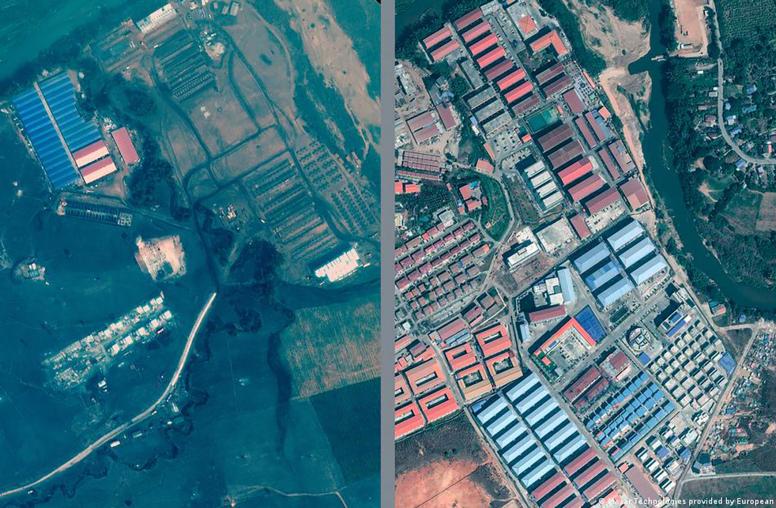 Human Rights
Human Rights
Human rights abuses can spur violent conflict, or vice-versa. Effective protection of human rights underpins the legitimate governance and rule of law that establish the conditions for a state to resolve conflicts and grievances without violence. The U.S. Institute of Peace provides grants, fellowships, education and publications to deepen understanding of the critical role of human rights protection in preventing and managing violence.
Featured Publications

The Latest on Southeast Asia’s Transnational Cybercrime Crisis
Increasing scrutiny and exposure of global internet scams based in Southeast Asia has sparked fast-moving developments to quash the schemes and countermoves by the organized gangs behind them. Recent months have seen crackdowns, arrests and internet cutoffs by law enforcement agencies and regional governments. Meanwhile, Cambodia and Myanmar continue to be the most egregious havens for criminal operations, while Laos seems to be demonstrating early signs of concern for the impact of organized crime on its sovereignty.

Religious Leaders, Civil Society Oppose Taliban’s Vice and Virtue Law
The Taliban’s new vice and virtue law, which places sweeping restrictions on women’s dress, mobility and public presence, is facing pushback from Afghan religious scholars, civil society, the wider Muslim community and even the Taliban themselves.

Myanmar Scam Hubs Revive Fast After China Eases Pressure on Junta
Transnational crime groups in Southeast Asia, hit with intense scrutiny and law enforcement action earlier this year, are moving into new areas and adapting their operations as they revive and expand global scam operations. In Myanmar — a key center of this internet-based criminal activity — extreme political instability combined with the connivance of the country’s military and its militias continue to provide fertile ground for crime groups, albeit in new configurations. At the same time, a sudden shift in China’s posture toward Myanmar’s military regime has eased pressure on the scam industry, allowing criminal networks to further scale up their malign activities.
Current Projects

Border Security Training Program
USIP’s Border Security Training Program trains police officers from Kenya’s Border Police Unit and General Service Unit who serve along the Kenya-Somalia border. The program increases the capacity of Kenyan police to manage conflicts nonviolently and to effectively partner with communities along the Kenya-Somalia border in order to more effectively interdict terrorist suspects and reduce justice-related drivers of violent extremism in Northeast Kenya.

Conflict Management Training for Peacekeepers
In 2004, the U.S. Department of State attended a lessons-learned conference in Rwanda, where commanders returning from Darfur reported that much of their peacekeeping work involved some form of negotiation. They expressed the need for their successors to receive training in conflict management skills in order to succeed, which their pre-deployment training dedicated very little focus to at the time. To fill this training gap, the U.S. Department of State approached USIP in 2008 to deliver conflict management trainings for peacekeepers as part of the U.S. contribution to peacekeeping in Africa.

Transnational Organized Crime in Southeast Asia
Over the past decade, Southeast Asia has become a major breeding ground for transnational criminal networks emanating from China. USIP assembled a senior study group to assess one of the most pernicious aspects of such criminality: rapidly spreading, industrial-scale scam compounds that rely on forced labor lured from around the world. The senior study group convened four meetings to share research and information on the trends, dimensions and character of the criminal networks operating the scam compounds and developed recommendations for countering their malign effects.